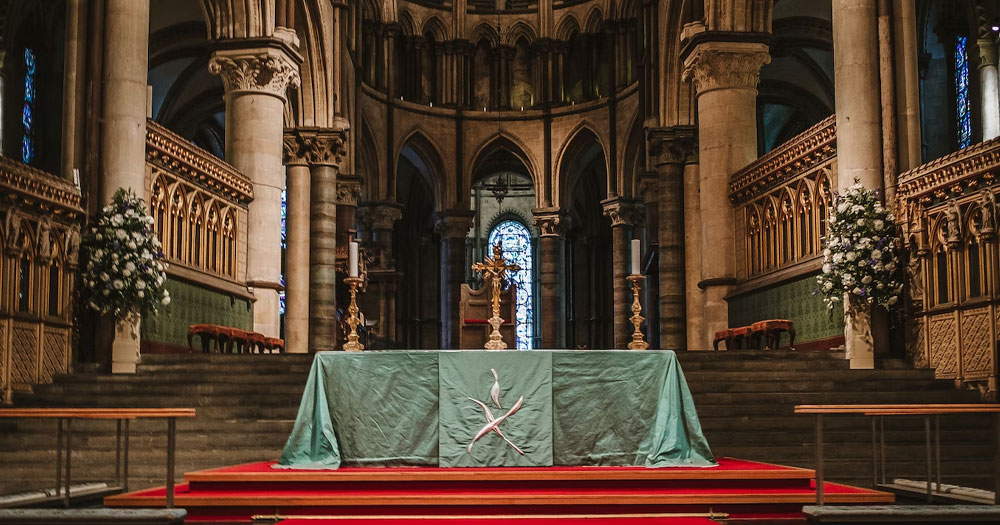The Church of England is exploring the possibility of no longer referring to God as “he” and instead using gender-neutral terms. The matter was raised by priests who asked to be allowed to stop using gendered language when referring to the deity.
The Church of England announced that it would launch a project this spring to debate whether they will propose any alterations, which will then need the approval of the Synod, the church’s decision-making body. Such changes will represent a departure from the traditional Jewish and Christian teachings that date back millennia.
The matter was discussed after Rev. Joanna Stobart asked a question to the Synod about developing “more inclusive language”. According to the Bishop of Lichfield, Rev. Dr. Michael Ipgrave, the Church has been “exploring the use of gendered language in relation to God for several years”.
“After some dialogue between the two commissions in this area, a new joint project on gendered language will begin this spring,” the Bishop said. He then added that introducing gender-neutral terms in reference to God in the liturgical provision of the Church of England “would require a full Synodical process for approval”.
The announcement has already sparked criticism, as Rev. Dr. Ian Paul told The Telegraph that making such changes would represent an abandonment of the church’s doctrine. “The fact that God is called ‘Father’ can’t be substituted by ‘Mother’ without changing meaning, nor can it be gender-neutralised to ‘Parent’ without loss of meaning,” he said.
“Fathers and mothers are not interchangeable but relate to their offspring in different ways,” he continued. “If the liturgical commission seeks to change this, then in an important way they will be moving the doctrine of the church away from being grounded in the scriptures.”
However, a spokesperson for the Church of England countered these arguments, saying: “This is nothing new. Christians have recognised since ancient times that God is neither male nor female, yet the variety of ways of addressing and describing God found in scripture has not always been reflected in our worship.
“There has been greater interest in exploring new language since the introduction of our current forms of service in contemporary language more than 20 years ago,” they added. “As part of its regular programme of work for the next five years, the Liturgical Commission has asked the Faith and Order Commission to work with it on looking at these questions.”
The spokesperson concluded, “There are absolutely no plans to abolish or substantially revise currently authorised liturgies, and no such changes could be made without extensive legislation.”
Last weekend, the Archbishop of Canterbury and head of the Church of England, Justin Welby, joined Pope Francis and another Christian leader in denouncing laws criminalising consensual same-sex activity, saying that they are an “injustice” and a “sin”.
© 2023 GCN (Gay Community News). All rights reserved.
Support GCN
GCN is a free, vital resource for Ireland’s LGBTQ+ community since 1988.
GCN is a trading name of National LGBT Federation CLG, a registered charity - Charity Number: 20034580.
GCN relies on the generous support of the community and allies to sustain the crucial work that we do. Producing GCN is costly, and, in an industry which has been hugely impacted by rising costs, we need your support to help sustain and grow this vital resource.
Supporting GCN for as little as €1.99 per month will help us continue our work as Ireland’s free, independent LGBTQ+ media.
